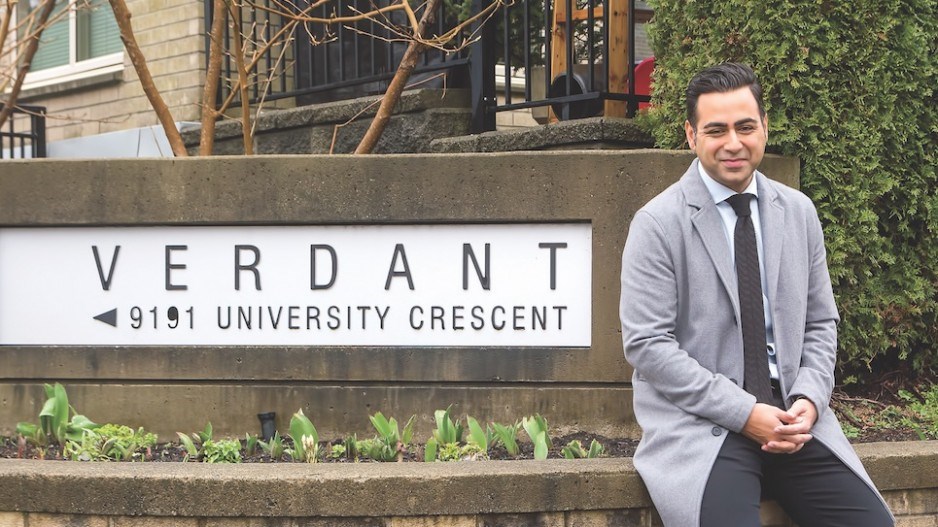Picking the villain in Metro Vancouver’s real estate market is like a game of Whac-A-Mole: pound one villain and another is sure to appear. Pre-sale assignments, flipping, foreign nationals, lack of supply, zoning constraints, municipal approval times – the list goes on, just like the rise in Metro Vancouver’s benchmark residential price.
It’s currently sitting at more than $1 million, where it’s been since July 2017. This is nearly twice the benchmark price of $560,000 posted in 2008, when the practice of assigning pre-sales for huge profits came under the microscope.
A year earlier, when the region’s benchmark price was just $513,400, Simon Fraser University Community Trust, Vancity Enterprises Ltd. and reSource Rethinking Building Inc. completed Verdant, a 60-unit condo project on the Burnaby SFU campus that aimed to provide affordable housing to the university community in perpetuity. A covenant ensures that prices remain 20% below the value of similar units on campus.
Today, units are assessed at approximately $475 a square foot, but recent sales have averaged $371 a square foot – a relatively modest increase from the original sale price of $254 a square foot.
While tight controls have helped keep prices in check, Adil Dinani, a broker with Royal LePage West in Coquitlam, notes that on-campus properties – by virtue of distance from transit and other amenities – already trade at a 20% discount vis-a-vis the rest of the market.
Dinani recently assisted a client to buy a three-bedroom home that, if it had been at Brentwood, would have cost $250,000 more. (Urban Analytics Inc. data indicates that new projects in Brentwood are selling at more than $1,000 a square foot.)
Verdant’s success at preserving affordable housing is alluring, but it’s tough to replicate in the open market. Working with the market doesn’t always work for those seeking housing.
The interest-free loan program the BC Liberals began offering first-time homebuyers in 2016 ended last week after lacklustre interest.
The City of Vancouver has encouraged affordable rental housing but defines it by the market average, and a starting rent of $1,496 a month for a studio doesn’t wash for many people. The city also followed the lead of Westbank Corp., which gave locals first crack at its Sewell’s Landing project in Horseshoe Bay after it was caught promoting the development to potential buyers in Asia. Half the units sold locally before international marketing resumed last year, and Vancouver has since embraced a similar strategy as part of its “housing reset.”
But the key for developers such as Byron Chard, CFO and acquisitions officer with Chard Development Ltd. in Vancouver, is preferential pricing that opens doors for buyers and gives them a jump on equity accumulation.
Chard struck a financing deal with BC Housing allowing Vivid at the Yates, a 135-unit condo project in Victoria, to meet local demand with units 8% below prevailing market prices. Buyers commit to occupying the units for at least two years and reap the benefit of any increase in price, allowing them to re-enter the housing market at an equivalent level.
The project is 80% sold, with 72% of buyers from Victoria and 16% from the rest of Vancouver Island. The average household income of buyers was $71,000 a year.
“It’s to facilitate, essentially, a set demographic to move up the housing continuum and free up rental stock,” Chard said of BC Housing’s involvement.
This is something Chard doesn’t believe Verdant would allow its occupants.
“When that individual goes to sell, they’re still 20% behind market,” he said. “You’re actually forcing them back into the rental pool then because they can’t afford to buy somewhere else.”
Payam Imani, president and CEO of Imani Development Inc., believes certain projects are better suited to providing affordable housing to locals. Working with Key Marketing Inc., Imani set up LocalsFirst.ca to promote projects targeting local buyers. To date, its sole project is the Windsor, a 126-unit project Imani is building in Vancouver.
Imani required foreign buyers to agree to collapse their contracts and buy a comparable unit in the project if a local stepped forward with a legitimate offer for their own within 90 days. To date, all but one of the sales have been to local buyers.
“The project lent itself to the program,” Imani said. “High-priced projects in the downtown core may not be well suited for a program like this, or a project in Metrotown may not be suited for a program like this. Every project is a little different, whether by quality, price point or where it’s located.”
Moreover, the sales program was voluntary. Imani said policies targeting certain results might bring others that were never intended.
“Often, policies that are manufactured could have unintended consequences. So this is something that needs to be sorted out by input from a number of different outlets, and over a period of time,” he said. “I don’t believe there is any one entity or magic bullet that’s going to solve the issue.” •




